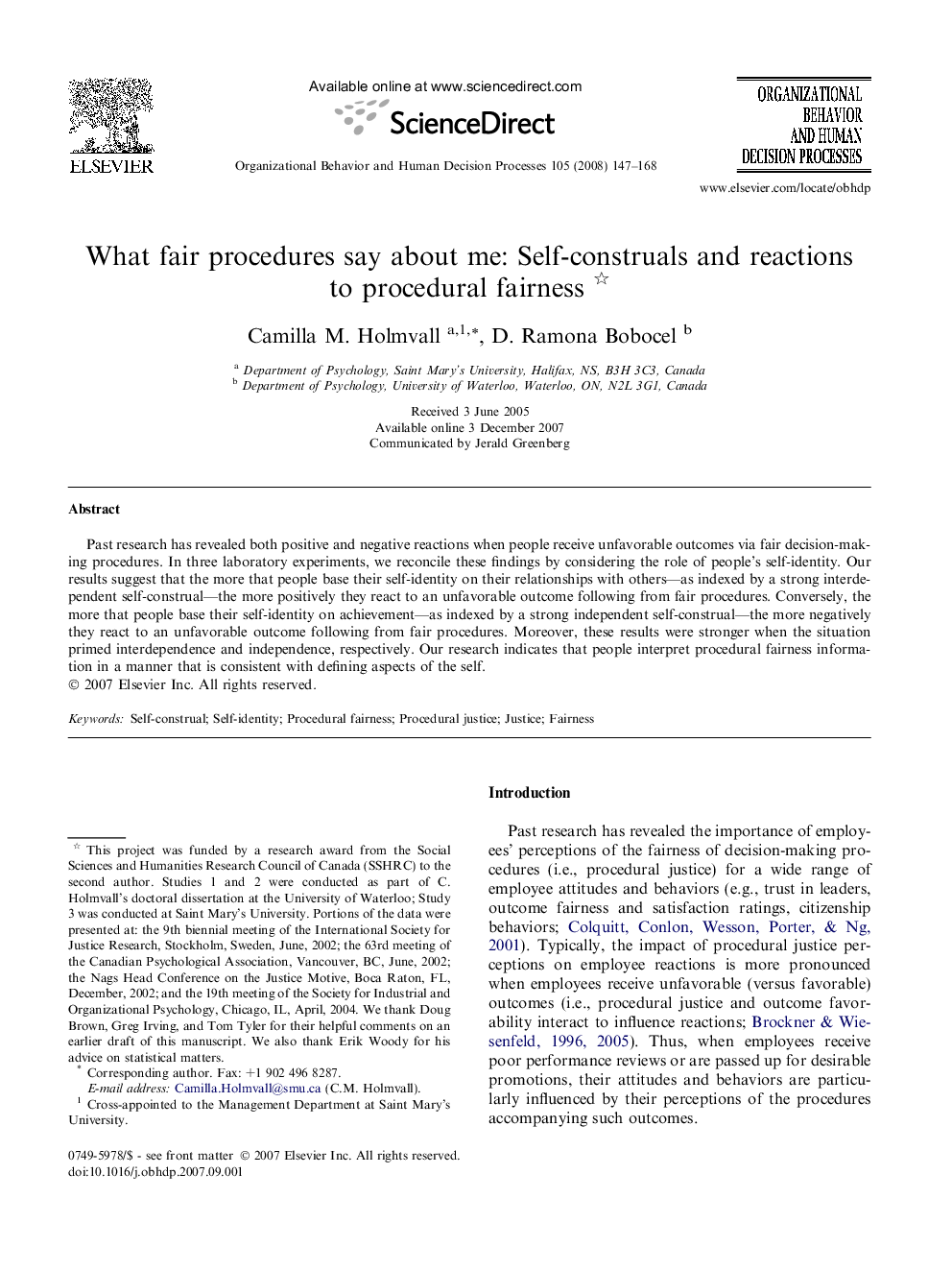| Article ID | Journal | Published Year | Pages | File Type |
|---|---|---|---|---|
| 888876 | Organizational Behavior and Human Decision Processes | 2008 | 22 Pages |
Past research has revealed both positive and negative reactions when people receive unfavorable outcomes via fair decision-making procedures. In three laboratory experiments, we reconcile these findings by considering the role of people’s self-identity. Our results suggest that the more that people base their self-identity on their relationships with others—as indexed by a strong interdependent self-construal—the more positively they react to an unfavorable outcome following from fair procedures. Conversely, the more that people base their self-identity on achievement—as indexed by a strong independent self-construal—the more negatively they react to an unfavorable outcome following from fair procedures. Moreover, these results were stronger when the situation primed interdependence and independence, respectively. Our research indicates that people interpret procedural fairness information in a manner that is consistent with defining aspects of the self.
